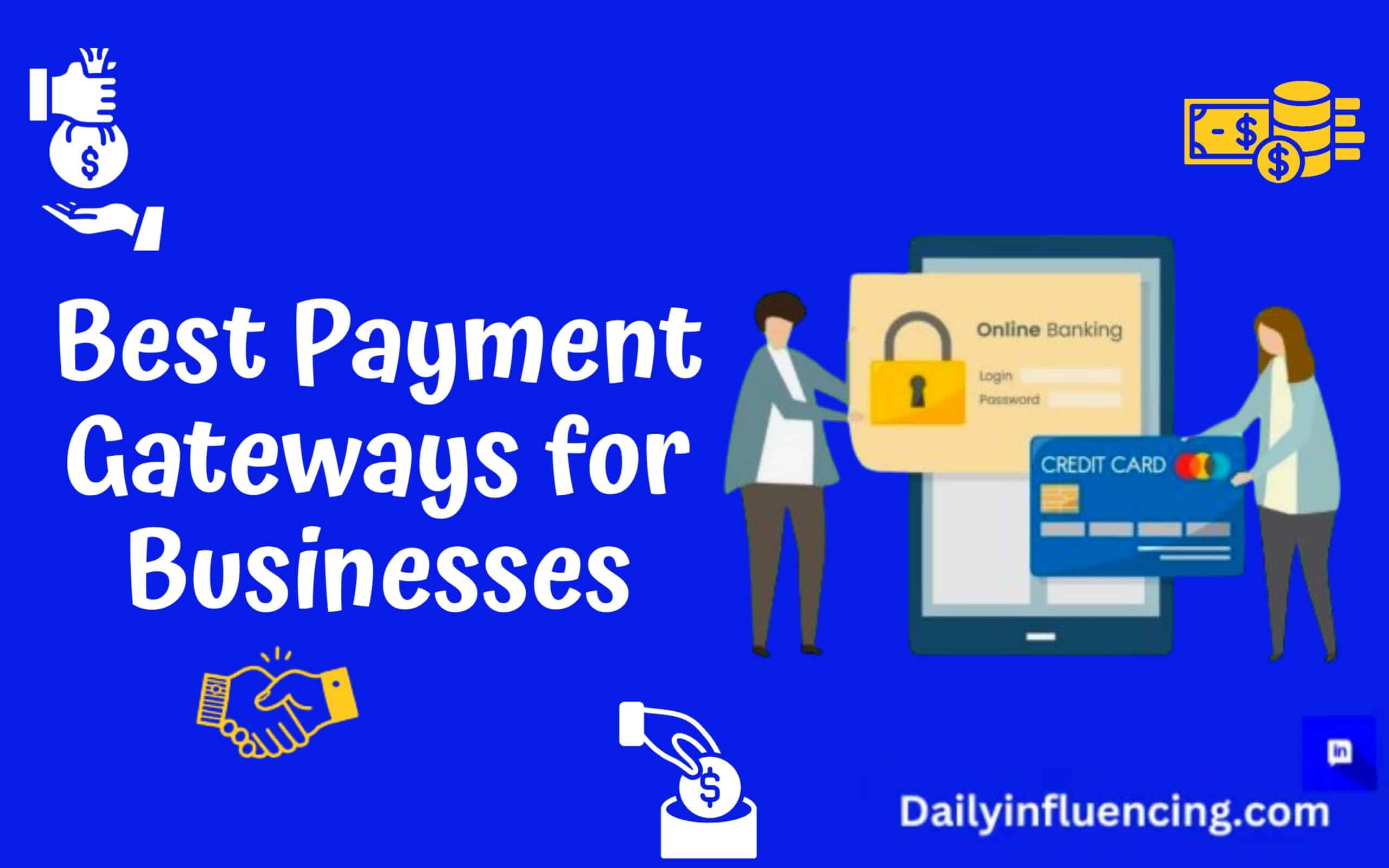
In Nigeria’s rapidly expanding digital economy, selecting the right payment gateway provider is necessary for business growth and customer satisfaction. Payment gateway providers in Nigeria serve as essential technological bridges that enable online transactions between merchants and customers, processing sensitive financial data securely while navigating the unique challenges of the Nigerian financial ecosystem.
With Nigeria’s e-commerce market projected to reach $75 billion by 2025, businesses need reliable payment processing solutions tailored to local needs.
This article examines the top 10 payment gateway providers in Nigeria, analyzing their features, pricing structures, and suitability for different Nigerian business models to help you make an informed decision.
Demystifying Payment Gateway Providers in Nigeria: Top Insights You Should Know
Choosing the right payment gateway for your Nigerian business can feel like trying to pick the perfect jollof rice recipe at a family gathering. Everyone’s got an opinion, and there’s a lot at stake if you get it wrong!
Over the years, the luxury of having multiple payment gateways was limited, and merchants were stuck with clunky interfaces and ridiculous fees. Fast forward to 2025, and we’ve seen an explosion of payment gateway providers competing for Nigerian businesses.
In the past, I’ve made some costly mistakes along the way. I once recommended a gateway to a client without thoroughly checking their settlement times. Three business days later, with inventory sold but no money in the bank, I had some serious explaining to do. That’s a mistake you don’t make twice!
Payment gateway providers in Nigeria essentially act as the digital middlemen between your customers and their banks. They validate payment details, ensure funds are available, and protect everyone’s sensitive data through encryption. But not all gateways are created equal when it comes to the Nigerian context.
1. The Real Deal on Nigerian Payment Gateway Features
The best payment gateway providers aren’t just processing transactions – they’re solving uniquely Nigerian problems. USSD payments? Absolutely critical if you’re targeting customers beyond the major cities. Bank transfer options? Non-negotiable for most Nigerian shoppers who still prefer this method over cards.
Security features are another thing you can’t compromise on. I’ve watched businesses lose thousands to fraudulent transactions because their gateway didn’t have proper verification systems in place. The fraud prevention tools need to be sophisticated enough to catch the bad actors but not so strict that they reject legitimate Nigerian purchases.
Withdrawal processing times between payment gateway providers vary wildly in Nigeria. Some will have your money in your account same-day, while others might keep you waiting up to a week. For small businesses running on tight cash flow, this difference can be the line between restocking inventory or missing out on sales opportunities.
2. Fee Structures That Won’t Eat Your Profits
The fee structures of payment gateways in Nigeria can literally make or break your profit margins. Most providers advertise their percentage fees, typically between 1.5% and 3%, but many forget to mention the additional charges hiding in the fine print.
I’ve seen businesses shocked when they realized their “affordable” gateway was also charging:
- Monthly subscription fees
- Settlement fees
- Chargeback fees that were astronomical
- Currency conversion charges for international payments
A business owner in Lekki switched payment providers and immediately saved almost ₦350,000 monthly just in transaction fees. Those savings went straight to their marketing budget, helping them grow even faster.
3. Integration Capabilities That Actually Work
There’s nothing worse than finding the perfect payment gateway only to discover it won’t integrate with your e-commerce platform. Or worse – it claims to integrate but breaks down constantly, leaving your customers frustrated and abandoning their carts.
The technical documentation provided by payment gateway providers in Nigeria ranges from excellent to absolutely useless. Some offer developer-friendly APIs with clear documentation and support, while others leave you hanging with outdated code samples and no assistance.
If you’re not technically inclined, you’ll want to look for payment gateways that offer plugin solutions for popular platforms like WordPress, Shopify, or Magento. These can save you thousands in developer fees and weeks of integration headaches.
4. Customer Experience Considerations
At the end of the day, your customers don’t care about your backend payment processes – they just want a smooth checkout experience. The best payment gateway providers in Nigeria understand this and design their user interfaces accordingly.
I’ve seen conversion rates jump by over 35% simply by switching to a gateway with a cleaner, more trustworthy-looking checkout page. Nigerian customers are particularly sensitive to security indicators and familiar payment methods during checkout.
Remember that your payment gateway is often the last touchpoint between your business and a customer before they complete a purchase. Make it count.
When you’re evaluating payment gateway providers for your business, don’t just look at the technical specs or the fees. Think about the whole picture – settlement times, available payment methods, customer experience, and the level of support you’ll receive when something goes wrong.
The right payment gateway provider can be a powerful partner in your business growth. Make the right choice, and both your customers and your bank account will reward you.
Let’s see the benefits, pros, and cons of the 10 payment gateway systems in Nigeria
Best 10 Payment Gateway Providers in Nigeria for 2025
Finding the perfect payment gateway provider for your Nigerian business can feel overwhelming. After years of experimenting with the different gateways payment solutions for dozens of businesses across different industries, I’ve learned which ones actually deliver results and which ones might leave you frustrated.
Let me share my real-world experience with the top payment gateway providers in Nigeria for 2025. I’ll break down not just what they claim to offer, but the pros and cons of working with them day-to-day.
1. Paystack: The Gold Standard for Nigerian Payment Gateway Providers
Paystack continues to dominate the Nigerian payment gateway landscape in 2025, and with good reason. Since their acquisition by Stripe, they’ve maintained their laser focus on solving Nigerian-specific payment challenges while leveraging global infrastructure.
What I’ve personally found most valuable about Paystack is their fraud protection system that’s specifically calibrated for Nigerian transaction patterns. This means fewer false positives that might reject legitimate customers – nothing hurts your business more than turning away paying customers unnecessarily!
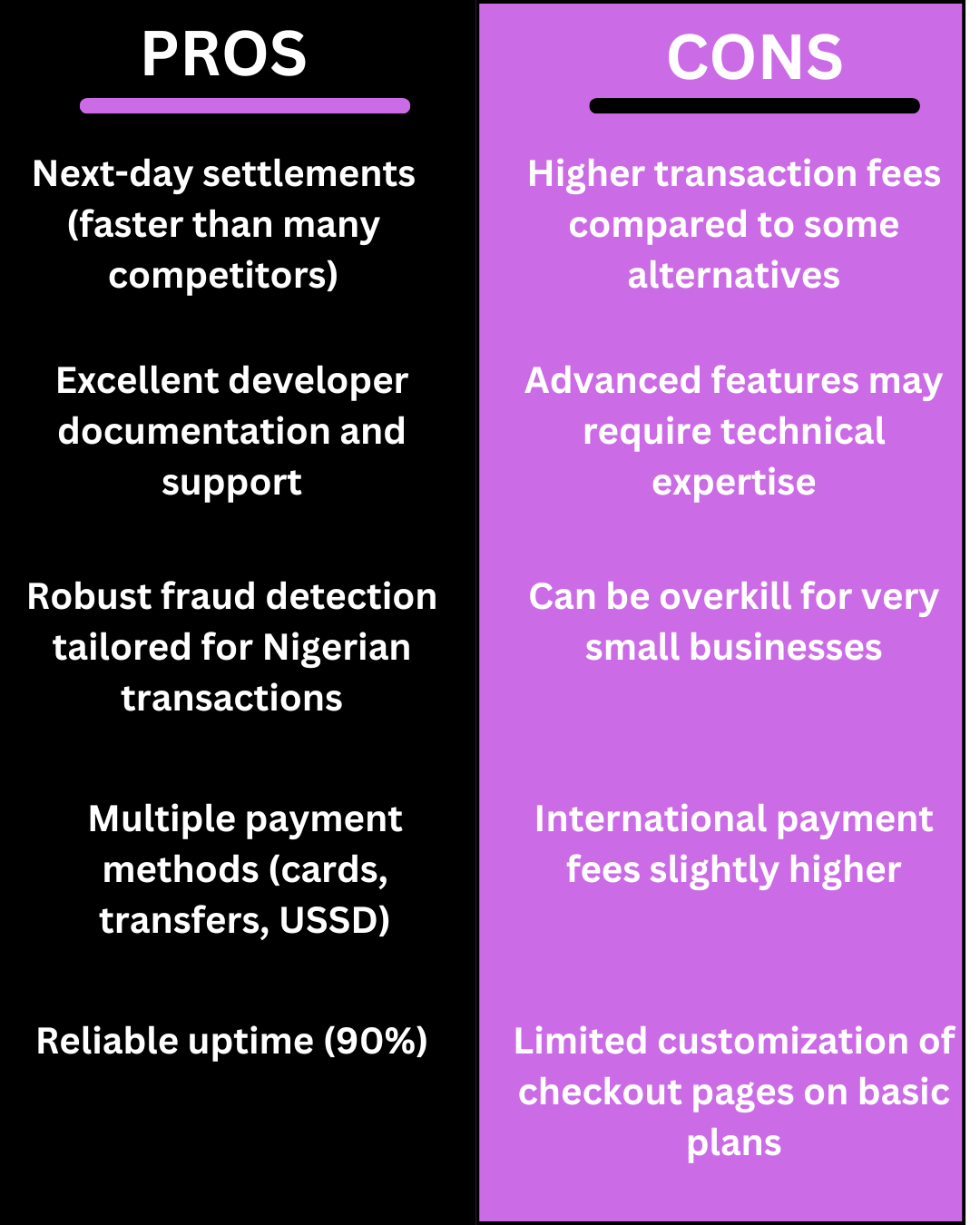
2. Flutterwave: The Expansive Ecosystem
Flutterwave has evolved beyond being just another payment gateway provider in Nigeria. They’ve built a comprehensive financial ecosystem that supports businesses from startup to scale-up stages.
What truly sets Flutterwave apart from other payment gateway providers is their international reach. If your business has ambitions beyond Nigeria’s borders, Flutterwave makes accepting payments from across Africa and globally surprisingly straightforward. I’ve seen businesses expand regionally with minimal payment friction using their services.
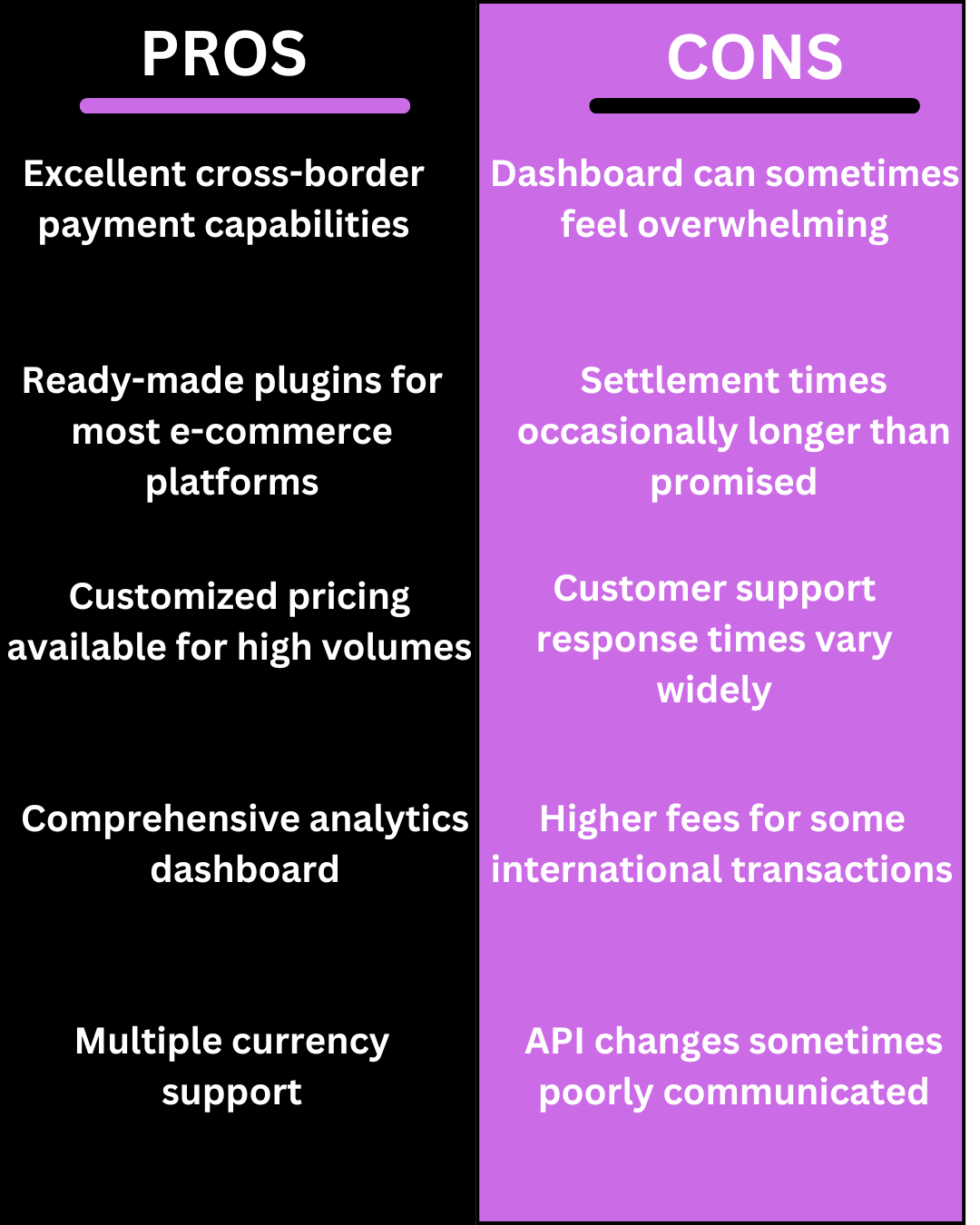
3. Interswitch Webpay: The Established Player
When it comes to longevity among payment gateway providers in Nigeria, few can match Interswitch’s track record. Their Webpay solution benefits from deep relationships with Nigerian banks, often resulting in smoother transaction processing.
Their dashboard makes Webpay an accessible payment gateway for non-technical Nigerian business owners. The interface won’t win any design awards, but it provides clear transaction information and straightforward reconciliation tools that business owners appreciate. For businesses prioritizing stability over cutting-edge features, Interswitch remains a solid choice.
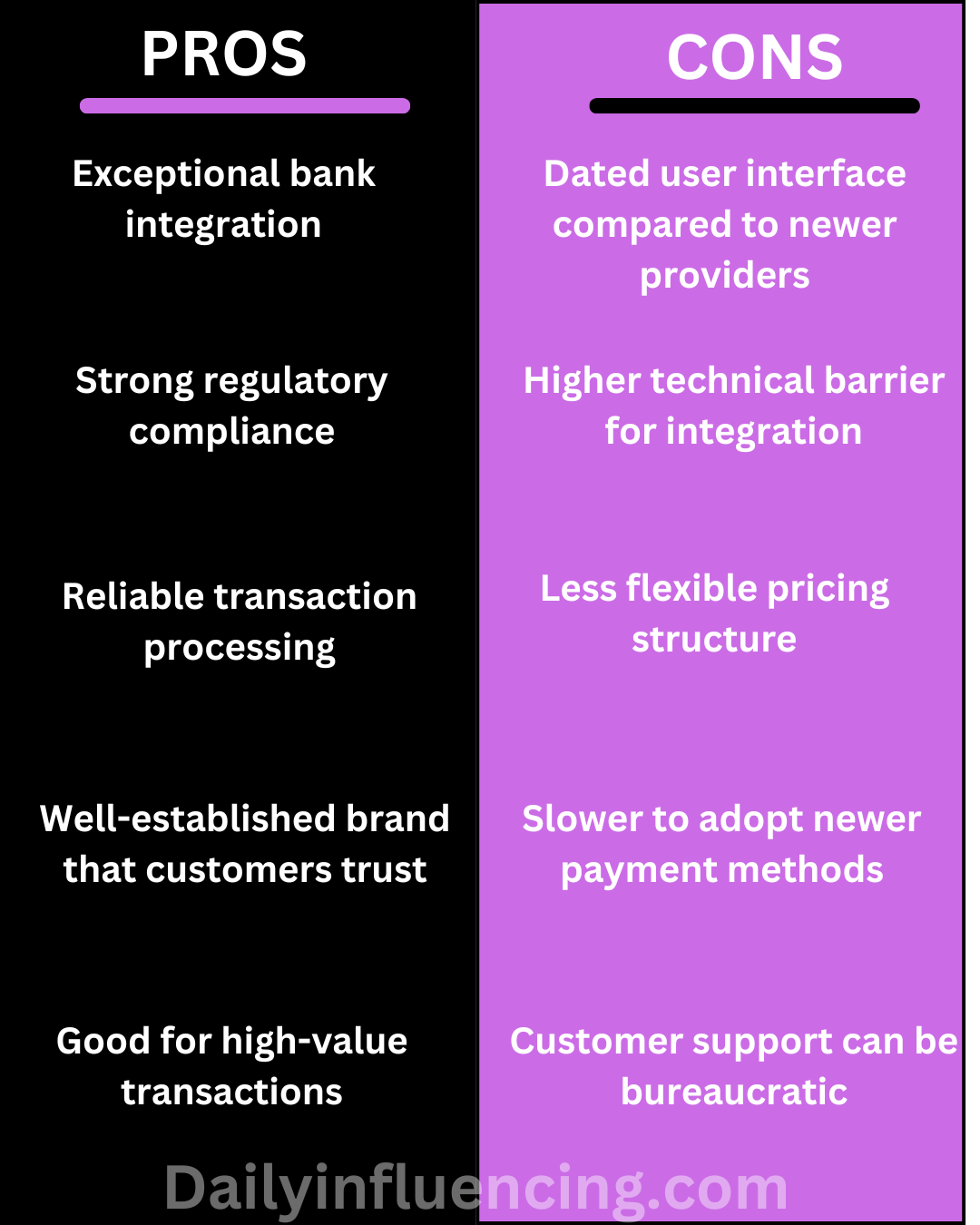
4. Remita: Best for Government Integrations
Developed by SystemSpecs, Remita stands out among payment gateway providers in Nigeria for its comprehensive payment solution that serves both businesses and government agencies.
I’ve found Remita particularly valuable for companies that frequently interact with government agencies. Their tax payment integration alone can save countless hours that would otherwise be spent navigating bureaucratic payment processes. For businesses with large workforces, their salary payment functionality streamlines operations significantly.
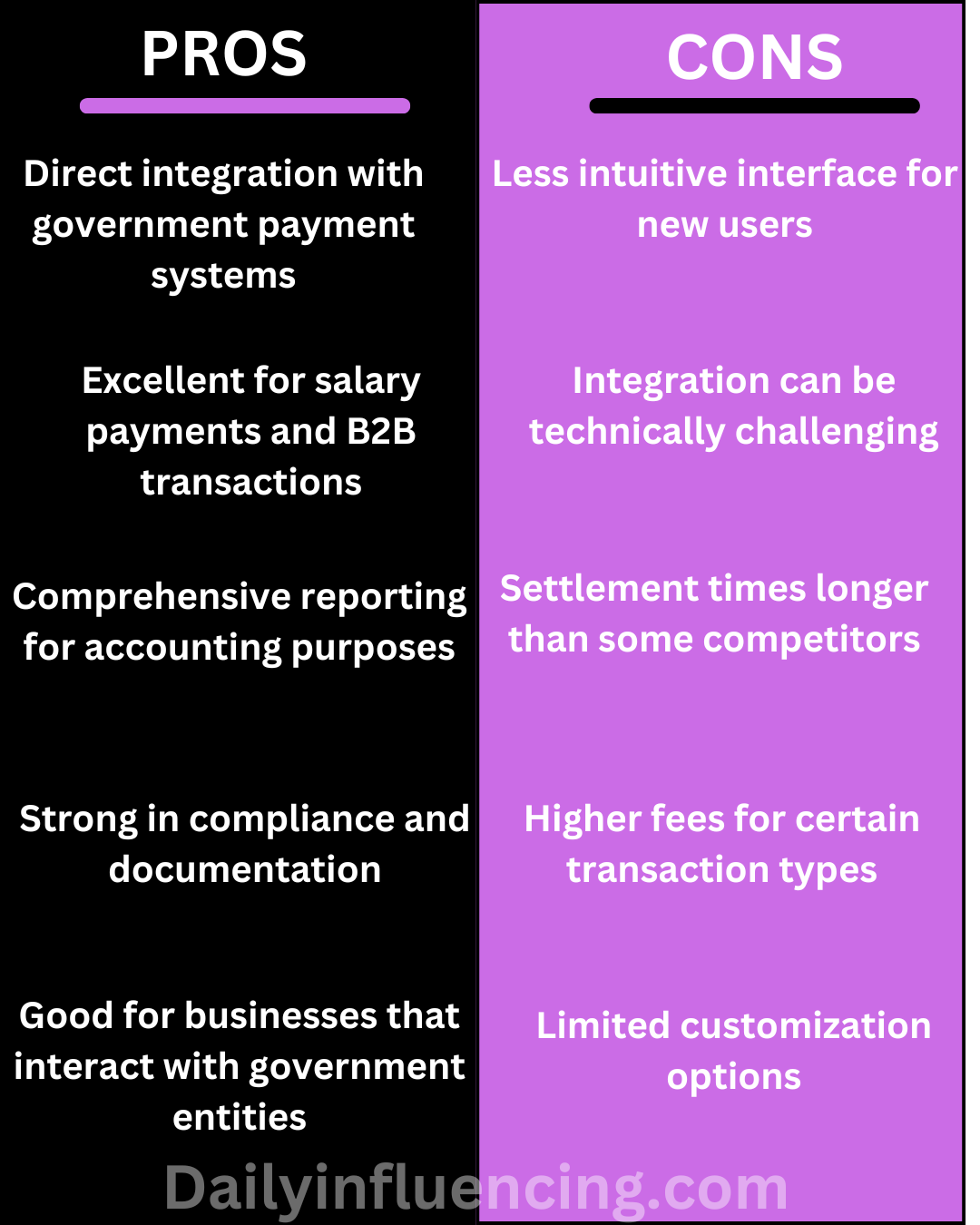
5. VoguePay: The Payment Gateway Designed for Small Business Growth
Voguepay has carved a niche among payment gateway providers in Nigeria with its focus on small to medium-sized businesses and user-friendly interface.
Their approach makes payment processing accessible to merchants who might be intimidated by more technically complex solutions. I’ve recommended Voguepay to several small business clients who were just starting their e-commerce journey, and they’ve appreciated the straightforward setup process and predictable fees.
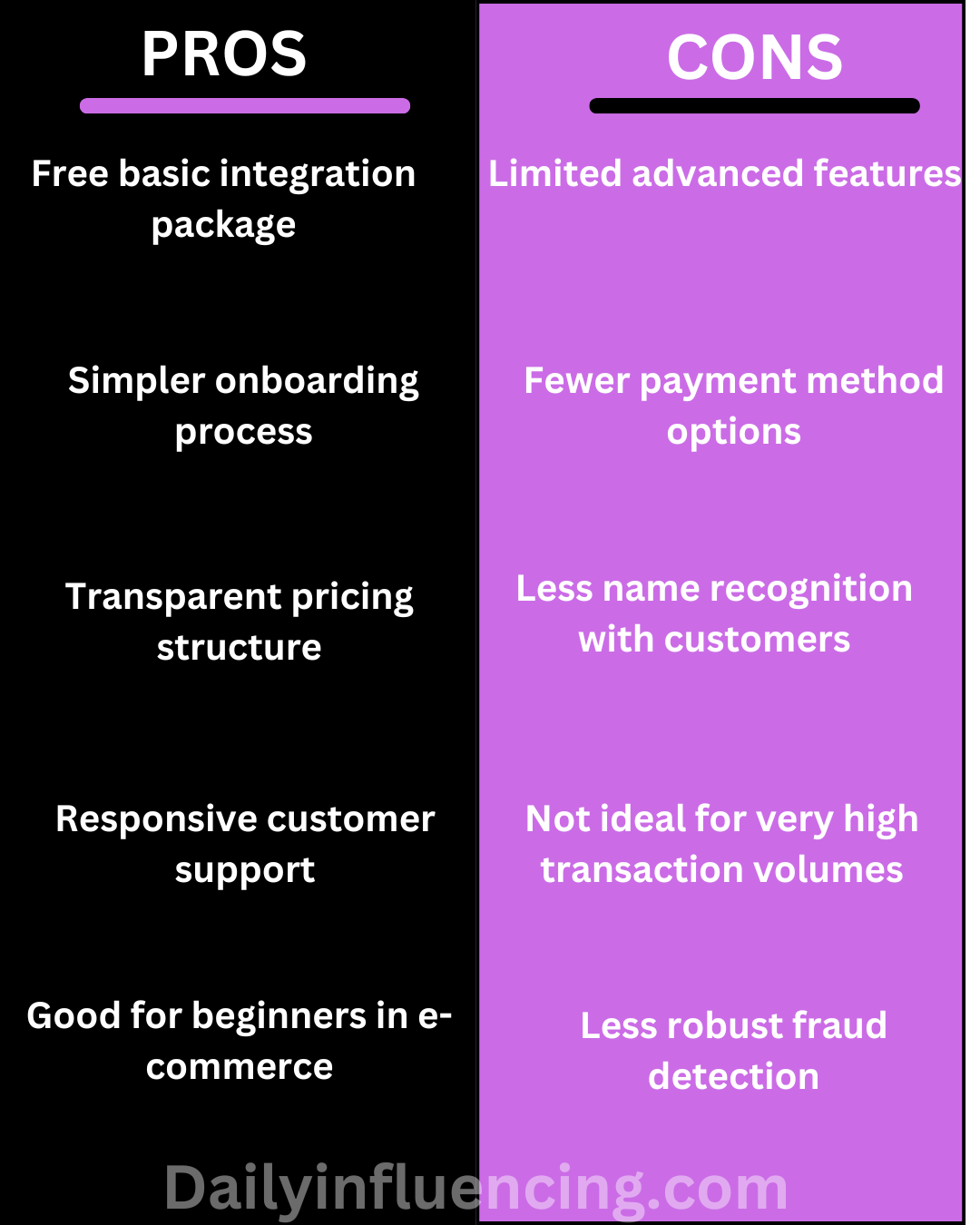
6. Monnify: Virtual Account Specialists
As a newer entrant among payment gateway providers in Nigeria, Monnify specializes in automated collection solutions with virtual accounts and robust API services.
This specialization addresses a specific pain point for subscription businesses and companies managing recurring payments. For one client running a membership site, Monnify’s virtual account system eliminated nearly 15 hours of weekly reconciliation work. Their automated recurring billing functionality works more reliably than many competitors.
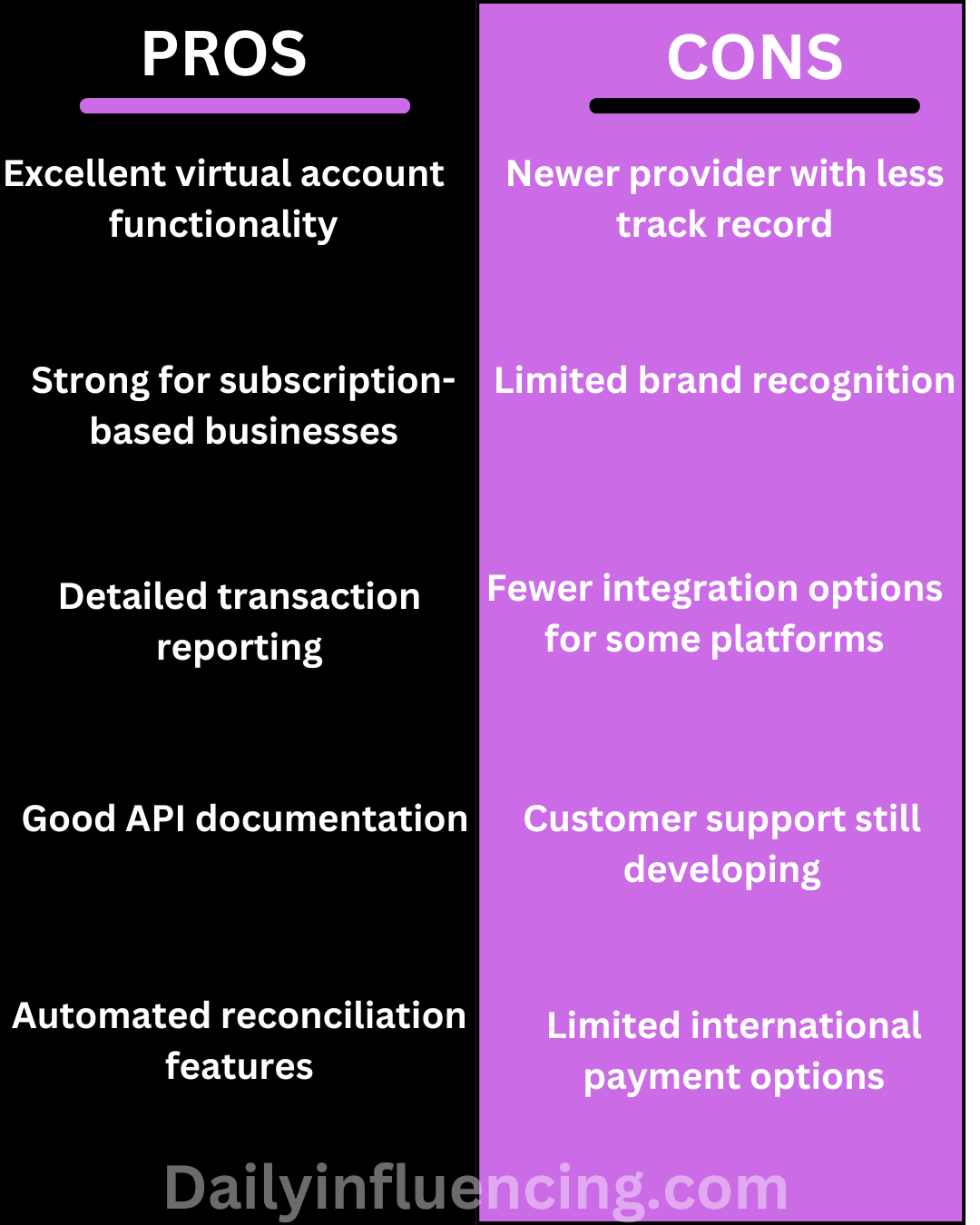
7. eTranzact: Industry-Specific Payment Gateway Solutions
As one of the pioneering payment gateway providers in Nigeria, eTranzact offers solutions tailored to different industries with specialized needs.
Their omnichannel approach ensures businesses can meet customers wherever they prefer to pay. For brick-and-mortar retailers venturing online, eTranzact provides a unified view of transactions across all sales channels, which simplifies accounting and reporting considerably.
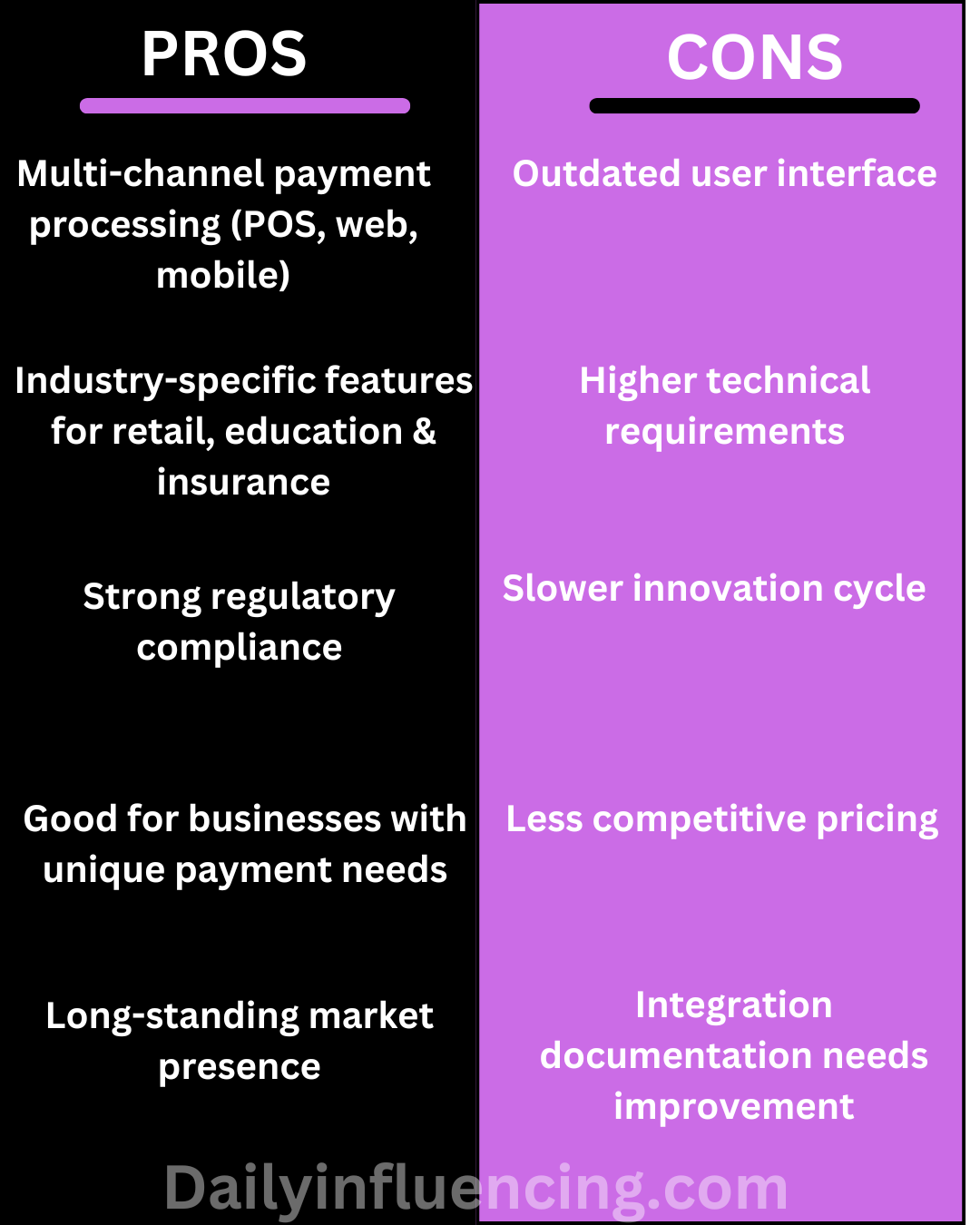
8. Payporte: E-commerce Integration
Known among payment gateway providers in Nigeria for its e-commerce focus, Payporte offers integrated solutions that combine payment processing with marketplace features.
This integration makes them particularly valuable for businesses selling physical products online. The unified approach reduces the technical complexity of managing separate systems for your store and payment processing. For non-technical founders looking to launch quickly, Payporte offers a compelling all-in-one solution.
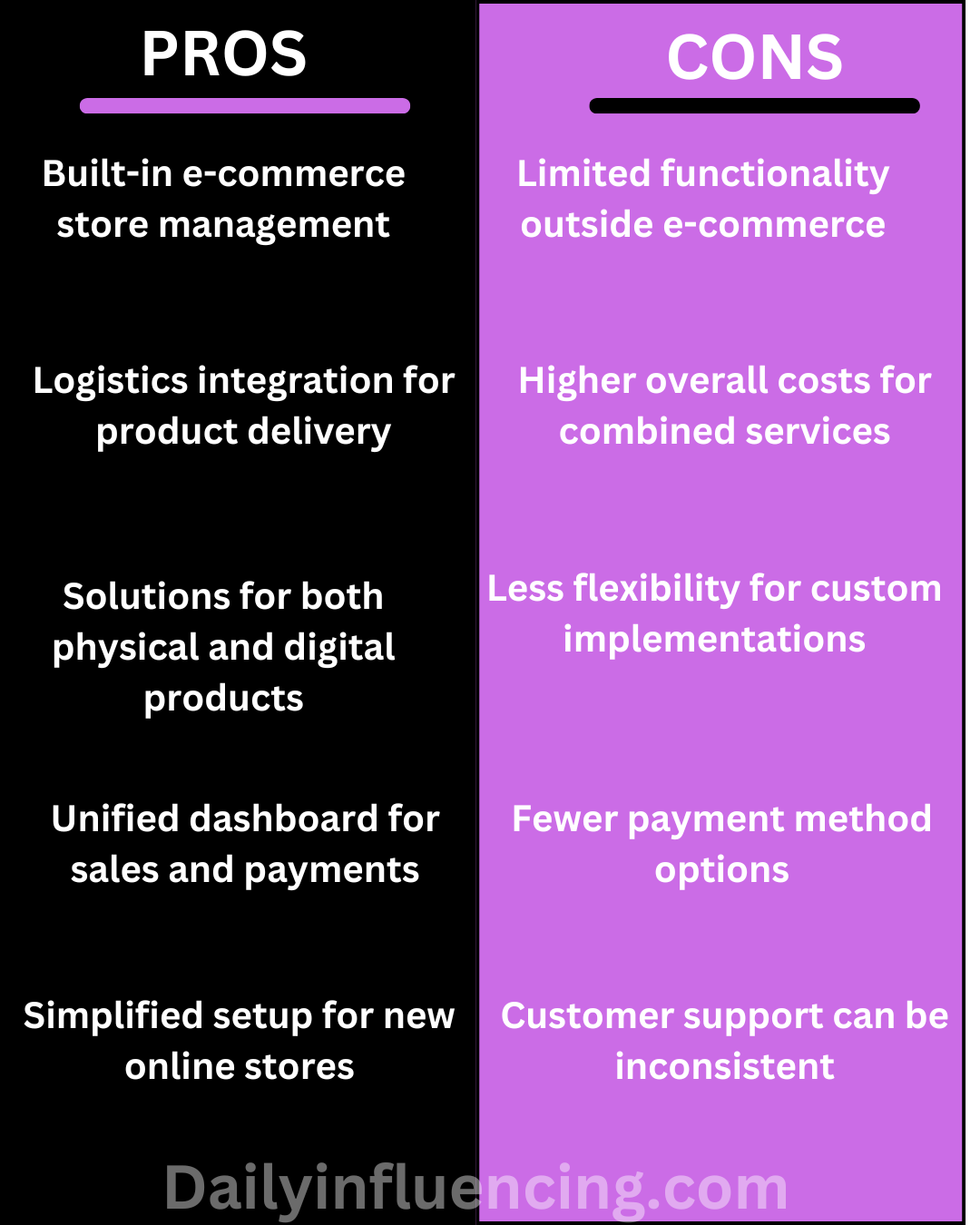
9. Wallets Africa: Financial Inclusion Focus
Emerging strongly among payment gateway providers in Nigeria, Wallets Africa offers digital wallet solutions with payment gateway capabilities focused on financial inclusion.
Their approach opens up payment acceptance to broader customer segments, including the underbanked. For businesses targeting customers outside major urban centers, Wallets Africa provides payment options that meet these customers where they are financially.
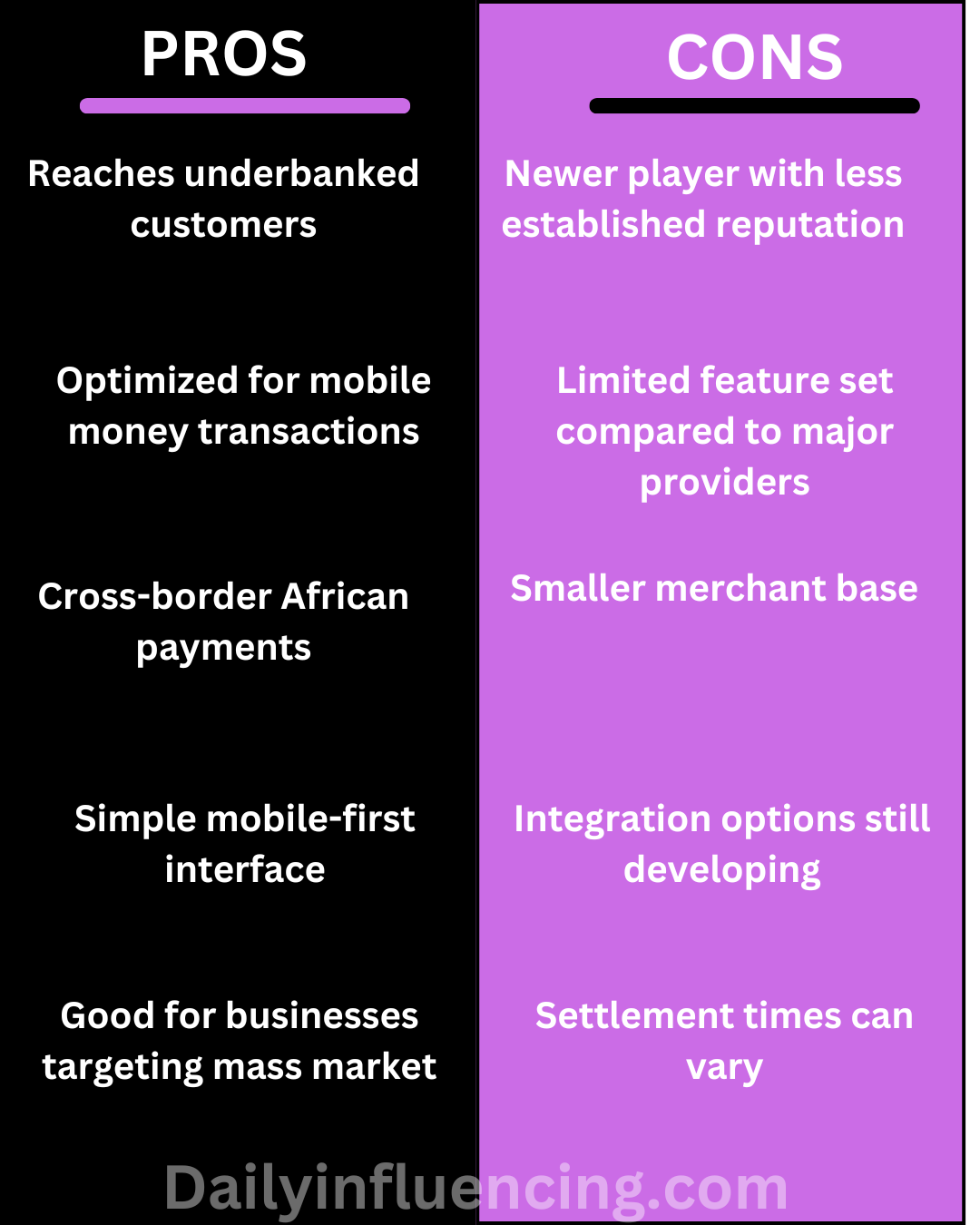
10. Quickteller Business: Beyond Payments
Developed by Interswitch, Quickteller Business stands distinct from Webpay as a payment gateway provider in Nigeria focused on comprehensive business management beyond just payments.
This broader functionality makes it a potential all-in-one solution for smaller businesses. Their payment gateway allows Nigerian businesses to accept payments while managing inventory, simplifying operations for merchants selling physical goods.
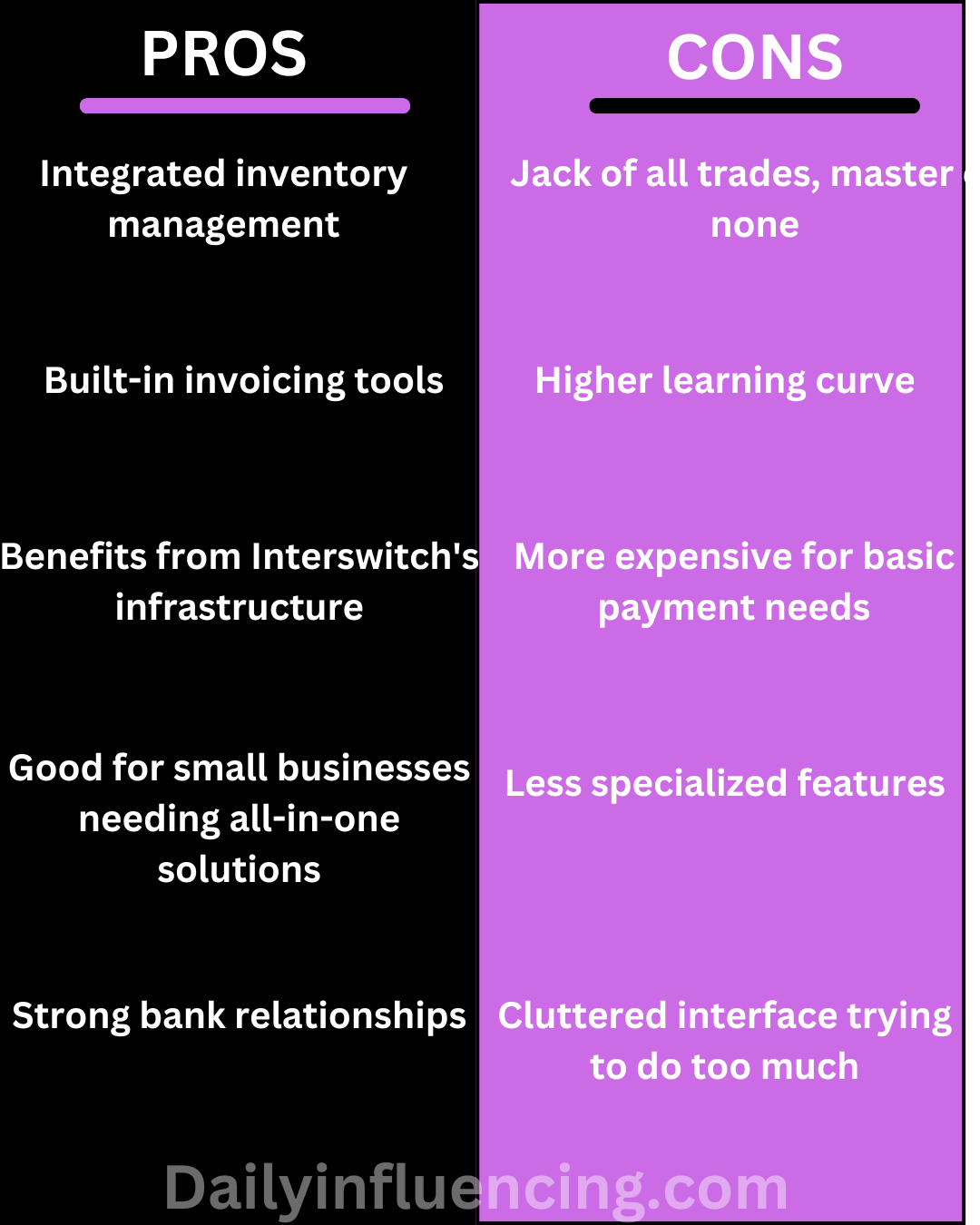
In 2025, the right payment gateway provider can transform your Nigerian business, turning payment processing from a necessary headache into a strategic advantage. Each of these top payment gateway providers in Nigeria offers unique strengths – the best choice depends on your specific business needs, technical capabilities, and growth plans.
The truth is there’s no one-size-fits-all solution. The right choice depends entirely on your business model, technical resources, and specific requirements. Don’t just go with the most popular option – take the time to match your needs with the provider’s strengths.
Important Factors to Consider When Choosing Payment Gateway Providers in Nigeria
After understanding the best way a payment gateway provider works over the years, I’ve learned that the devil is truly in the details. The features that initially seem minor can end up making or breaking your entire payment experience. Let me walk you through what really matters when evaluating payment gateway providers in Nigeria.
1. Withdrawal Processing Times: The Cash Flow Factor
Withdrawal processing times among payment gateway providers in Nigeria can vary dramatically.
For businesses with tight cash flow, waiting an extra day or two for your money can seriously impact your ability to restock inventory or meet operational expenses.
Most small e-commerce businesses struggle because they didn’t realize their “affordable” payment gateway was essentially using their money as an interest-free loan for three days. Don’t make that mistake, put settlement time high on your priority list.
2. Transaction Fees: The Hidden Profit Killer
When it comes to fees, payment gateway providers in Nigeria aren’t always transparent about the total cost of processing payments. The advertised percentage is rarely the whole story.
Transaction fees for payment gateway providers in Nigeria typically range from 1.5% to 3% plus possible fixed charges, but you need to watch for:
- Cap amounts: Some providers cap their fees on large transactions (huge advantage if you process large orders)
- Monthly minimums: You might pay even if you don’t process enough transactions
- Settlement fees: Extra charges to move money to your bank account
- Chargeback fees: These can be painfully high with some providers
- International payment surcharges: Important if you accept foreign currencies
The cheapest provider isn’t always the best value – look at the total cost picture, including reliability. A slightly more expensive gateway that never fails during high-volume periods might actually cost you less than a cheaper option that crashes during your big promotional sale.
3. Payment Method Support: Meet Your Customers Where They Pay
This might seem obvious, but I’ve seen businesses lose significant sales by choosing payment gateway providers that didn’t support the payment methods their customers preferred. The Nigerian payment scenery is unique, with consumers using a diverse mix of:
- Card payments (Visa, Mastercard, Verve)
- Bank transfers
- USSD payments
- Mobile money
- QR code payments
- Digital wallets
One thing you need to keep in mind is to consider your target audience carefully. If you’re selling to young, tech-savvy urban Nigerians, card payments and digital wallets might be sufficient. But if your customer base includes older demographics or those outside major cities, USSD support becomes essential.
4. Reliability and Uptime: When “Most of the Time” Isn’t Good Enough
Reliability and uptime are critical factors when comparing payment gateway providers in Nigeria due to occasional infrastructure challenges. Payment failures during peak sales periods can devastate your business reputation and revenue.
When evaluating reliability:
- Ask for uptime statistics (aim for 99.9% or better)
- Research public incidents and outages
- Talk to existing customers about their experience
- Test performance during high-traffic periods
- Check if they have redundant systems
The most reliable payment gateway providers in Nigeria have invested in redundant systems and have contingency plans for when the inevitable technical issues arise. This resilience is worth paying a premium for, particularly if timely payments are vital to your business model.
5. Why Strong Local Customer Support Matters for Your Payment Gateway
Nothing reveals the true value of your payment gateway provider like trying to reach them when transactions are failing and customers are complaining. Local customer support quality varies greatly among payment gateway providers in Nigeria.
Support options to consider:
- Availability: 24/7 support vs. business hours only
- Channels: Phone, email, live chat, WhatsApp
- Response time: Minutes vs. hours vs. days
- Technical expertise: Junior support staff vs. experienced engineers
- Language: English-only vs. support in local languages
6. Integration Ease: Technical Reality Check
The technical documentation provided by payment gateway providers in Nigeria ranges from excellent to absolutely useless. Some offer developer-friendly APIs with clear documentation and support, while others leave you hanging with outdated code samples and no assistance.
If you have a dedicated development team, this might be less of a concern. But for small to medium businesses with limited technical resources, integration difficulties can delay your launch by weeks or add significant costs to your project.
Look for payment gateway providers that offer:
- Clear, up-to-date API documentation
- Sample code in multiple programming languages
- Ready-made plugins for popular platforms (WordPress, Shopify, etc.)
- Sandbox testing environments
- Developer support channels
7. Security and Compliance: Non-Negotiable Protection
Security features are another thing you can’t compromise on. I’ve watched businesses lose thousands to fraudulent transactions because their gateway didn’t have proper verification systems in place.
Key security aspects to evaluate:
- PCI DSS compliance certification
- Two-factor authentication for merchant accounts
- Fraud detection systems tuned for Nigerian transaction patterns
- Address Verification Service (AVS) support
- Card verification value (CVV) enforcement
- Transaction monitoring and alerting
The fraud prevention tools need to be sophisticated enough to catch the bad actors but not so strict that they reject legitimate Nigerian purchases. This balance is particularly important in the Nigerian context, where some international security systems can flag genuine transactions as suspicious.
8. Mobile Optimization and the Nigerian Reality: Choosing the Right Payment Gateway
With over 70% of Nigerian internet traffic coming from mobile devices, your payment gateway must provide an excellent mobile experience. This isn’t just about having a responsive checkout page – it’s about optimizing the entire payment flow for sometimes unstable connections and smaller screens.
The best payment gateway providers in Nigeria have invested specifically in mobile optimization features like:
- Lightweight checkout pages that load quickly on slow connections
- Session persistence if a connection drops mid-payment
- SMS payment confirmation options
- Mobile-friendly management dashboards for merchants
- USSD fallback options when data connectivity fails
9. Analytics and Reporting: Business Intelligence
The reporting capabilities of payment gateway providers in Nigeria vary dramatically. Basic providers might offer simple transaction logs, while more sophisticated platforms provide detailed analytics that can inform your business decisions.
Valuable reporting features include:
- Customer retention and churn tracking
- Payment method usage statistics
- Failure reason analysis
- Geographic transaction distribution
- Time-based transaction patterns
- Revenue forecasting tools
Selecting the right payment gateway for your business in Nigeria isn’t just a technical decision – it’s a strategic choice that directly impacts your revenue, customer experience, and operational efficiency.
Conclusion
Selecting the right payment gateway provider in Nigeria is a strategic decision that directly impacts your business’s ability to capture sales and provide a seamless customer experience in the local market. The top 10 payment gateway providers we’ve examined offer varying strengths—from Paystack’s developer-friendly approach to Flutterwave’s pan-African reach, Interswitch’s established infrastructure to Monnify’s virtual account innovation.
By carefully assessing your specific business needs, transaction volumes, and customer preferences, you can identify the payment gateway provider that best aligns with your objectives in the Nigerian market. Remember that the ideal solution balances competitive pricing, robust security, and reliable performance while supporting payment methods preferred by Nigerian consumers.
FAQs
Most payment gateway providers in Nigeria require business registration documents (CAC certificate), bank account details, valid ID of the business owner, and in some cases, a physical address verification.
Settlement times vary significantly among payment gateway providers in Nigeria. Paystack typically offers next-business-day settlements, while Flutterwave offers T+1 or T+2 settlements depending on your plan. Traditional providers like Interswitch might take 2-3 business days.
Payment gateway providers in Nigeria generally charge between 1.5% to 3% per transaction plus a fixed fee (₦100-₦200). International card transactions often incur higher fees (3-3.5%). Some providers like Paystack charge 1.5% + ₦100 for local cards with caps on maximum fees. Monthly subscriptions (₦5,000-₦20,000) may apply for access to advanced features, while settlement fees might be charged separately by some payment gateway providers.
While international payment gateway providers like Stripe and PayPal technically work in Nigeria, they often have limitations. Most international providers don’t support popular local payment methods like USSD, bank transfers, or certain local cards. Additionally, settlement is typically in foreign currency, creating forex exposure and potential regulatory challenges.




